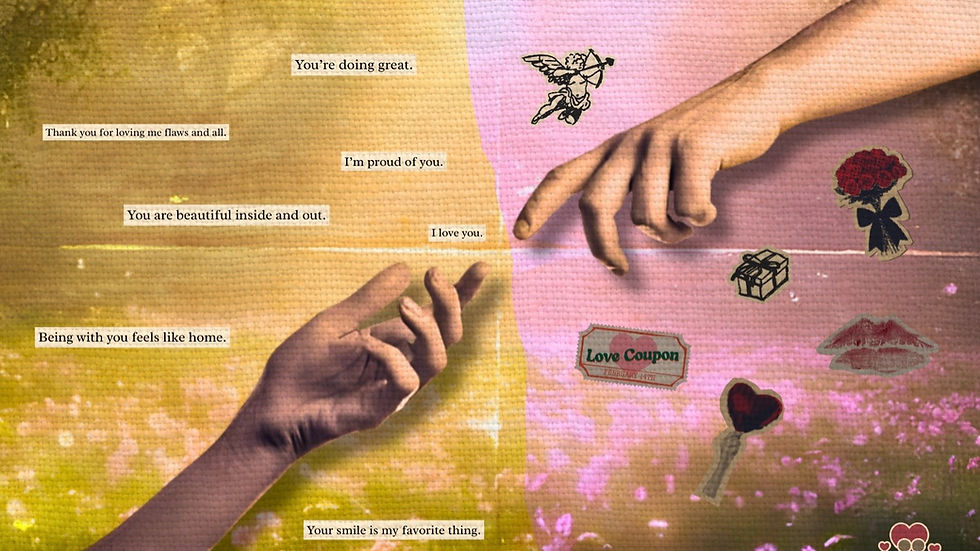LIFESTYLE AND CULTURE | Women Empowered!
- Katrina Isabel Valerio

- Mar 19, 2023
- 4 min read
Updated: Mar 25, 2023
𝗧𝗵𝗲 𝗦𝗵𝗮𝗺𝗲 𝗚𝗮𝗺𝗲: 𝗪𝗼𝗺𝗲𝗻 𝗮𝘀 𝗣𝗮𝘄𝗻𝘀 𝗶𝗻 𝗮 𝗣𝗮𝘁𝗿𝗶𝗮𝗿𝗰𝗵𝗮𝗹 𝗦𝗼𝗰𝗶𝗲𝘁𝘆
Throughout time, we’ve seen on multiple occasions that women or their womanhood are the ones to blame and shame when things go awry. When a child is a troublemaker, society looks down on their mothers. When women get involved in any sexual agenda, society is quick to “slut shame” them. When women fail as leaders, society points out that their psychological makeup is why they fail.

When things like this happen, people don't even realize that what’s going on is misogyny. Since we live in a patriarchal society, there are norms and standards that are deeply rooted in society, causing internal misogyny in many people and making it so easy for them to jump on the bandwagon of putting women down.
These women may have committed a mistake or two in their lifetime, but this doesn’t justify how society drags their name and sexuality through the mud. Monica Lewinsky and Leila De Lima’s demise can be used to examine this further. Ask yourself, if they were men, would they have gotten the same treatment that these women received?
Monica Lewinsky was a 22-year-old White House intern when she had an affair with Bill Clinton, who was 44 and was President of the United States. When news broke about their relationship, people were quick to shame Monica. She was torn down in every way possible by society. Her physical appearance was made fun of, as were her morals, and at large, her sexuality took all the hits from the masses.
Years later, during the #MeToo movement, people realized that she was a victim as well. Yes, the relationship was consensual, but people didn’t take into account that there was a power imbalance between the two, and Bill Clinton took advantage of someone younger and weaker than him. There was an abuse of power, and Clinton was the one who cheated on his wife, but still, Monica was the one humiliated and smeared across every media platform for having an affair with the president.
A more familiar story to us all is the tale of Leila de Lima. A senator turned political prisoner, a woman who was shamed to achieve someone else’s political gain. De Lima was on top of her game when she faced the biggest blow of her career. When Rodrigo Duterte won the 2016 presidential election, he sought out wrath against De Lima for investigating the Davao Death Squad.
He even publicly stated his conviction that De Lima would be imprisoned. Duterte alleged a lot of things against De Lima, saying that she had an affair with her driver and that she collected drug protection money while she was Justice Secretary. Later on, many fake pictures and videos were released on social media sites, smearing De Lima.
Aside from lies made about her credibility as an official, Leila De Lima’s womanhood was the biggest target in this tirade. Her dirty laundry was thrown in the streets for people to feast on, and even if it was fake, her reputation was tarnished in the process. Her enemies used humiliation as a tactic to tear her down. Lawfare wasn’t enough to beat her; she had to be disgraced in the public eye.
Even today, as those who testified against her retract their statements and her likeness is slowly being absolved in the photos and videos, the embarrassment and damage done to De Lima’s womanhood have forever etched themselves in her and in Filipinas.
What is shameful is that it is easy for people to point at women and use their sexuality to humiliate them. This stops women from being empowered by who they are, and this just sets society back to ages ago, when women succumbed to the ideas of a patriarchal society.
The culture where women’s sexuality is the one dagger to throw at them when they are in crisis needs to stop. Everyone has faults; we are human, but to use a woman’s sexuality to deface them is wrong.
The act of tearing women down today is as similar as how the townspeople would burn “witches” at the stake during medieval times. But, as Matilda Joslyn Gage argued, educated and assertive women are the ones who are viewed as a threat, which is why they were prosecuted by society—and this is still relevant today.
Nowadays, they don’t call women who are empowered in who they are "witches," they now call them names like “whores." These terms stay the same since they are used to police women’s behavior. When society can’t seem to “control” a woman’s behavior, when a woman breaks free from ideas set on how a woman should act, a woman will be called names to disgrace the
Remember, Cleopatra has always been portrayed as a seducer who lured Julius Caesar and Mark Antony. She’s portrayed as a woman who used her sexual prowess to achieve her political ambitions, when in reality, she was just a smart politician. Let’s remember her story when we see women who are being destroyed, because it is always easier to villainize and shame women than to understand them.
Article: Katrina Isabel Valerio
Graphics: Alyssa San Diego




Comments